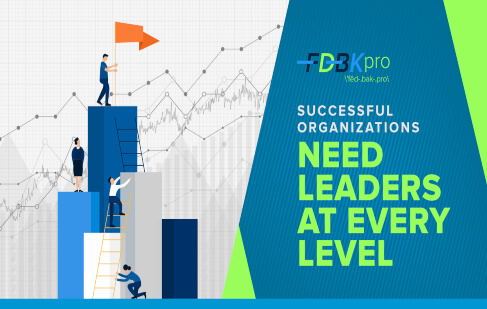Brilliant jerks − we’ve all encountered them at some point in time. These are the people who can be unquestioningly smart. They come up with great insights, are top performers and often the ones who easily cut to the finish line way before others.
But the problem begins when they begin to assume that their brilliance places them above everyone else. They hog all the meeting airtime, are secretive with their knowledge, and belittle others or are dismissive of others’ opinions. They have their own set of rules and judgments which are above people, processes, and alarmingly, above the organization.
Such people efficiently manage to create real issues within the organization by suppressing collaboration and unequivocal participation. That’s when the brilliant, becomes the ‘brilliant jerk’.
The problem with brilliant jerks
This term was made popular by Netflix CEO Reed Hastings who said, “Do not tolerate brilliant jerks. The cost to teamwork is too high.” This makes sense because being brilliant relates to your competency. Being a jerk relates to your nature. The brilliant jerks can’t get along well with others and often lower the team morale. People end up wasting time discussing what the ‘jerk’ did, and these frustrations impact the team’s productivity. It also leads the team to question their leader’s credibility for allowing an individual to behave in a manner that is unfair to others.
But brilliant jerks are also rock stars in their own right. Think Steve Jobs, Travis Kalanick or Mark Zuckerberg − they have built the most recognizable brands in the world and yet their employees hated to work with them. They were brilliant. But they were also jerks. And while they have managed to build hugely successful companies, in the end, they have also received serious flack. Jobs was fired from his own company. Zuckerberg is facing severe criticism for Facebook’s toxic work culture, and Travis Kalanick was let go from Uber for creating a toxic work environment.
So, at an organizational level, what should you do with these brilliant jerks? A large number of companies look at the results that these brilliant jerks bring to the table. It is also hard to ignore that often in hyper−growth environments top performers, who also can be brilliant jerks, simply get away with anything.
But according to an article in the Harvard Business Review, “avoiding a toxic employee can save a company a great deal of money − even more than the company would make by hiring a star performer.” Because brilliant jerks impact the company culture and culture is the basis of what brings success to your organization.
However, within each adversity lies opportunity. Given a labor market that is becoming increasingly competitive, letting go of a high−performing resource isn’t always feasible.
The brilliant jerk is bright and capable?and yet unpleasant − herein lies the area that you can fix.
From brilliant jerks to brilliant leaders
Since brilliant jerks are also brilliantly ambitious, they do want to rise up the corporate ladder. However, leaders need to be people−oriented, something that brilliant jerks are not. So, how can you turn your brilliant jerks into passionate leaders?
For this, feedback is critical. But the feedback has to be specific, well−articulated, and based on data − not gut feel.
You might even be surprised to note that these top performers might not have even realized that they’re being jerks. It may not even occur to them that their lack of interpersonal skills, reluctance to share, attitude and behavior could be causing them to lose out on growth opportunities.
For example, a brilliant coder might not realize how his poor attitude is costing him the coveted project managers role. Somehow, it feels wrong to assume that just because they are brilliant at work, they’ll be brilliant at evaluating themselves in an unbiased and objective manner.
Guide away the ‘jerkiness’
With technology at our disposal, there is so much that we can do, including providing relevant guidance. Leveraging assessments such as 16 personality assessment tests, and behavioral skills tests can get you deep and pointed insights into the challenges that high−performing individuals need help with and then connect them with the right mentor.
We talk about mentoring here because mentoring is an ongoing relationship with a person who has excelled in your line of work. This person is best suited to help your employees navigate the challenges that keep them from succeeding − in the case of brilliant jerks, this could help them understand and remedy the behaviors that could be responsible for the ‘jerk’ label.
Brilliant jerks are people who challenge the status quo or those who constantly ask questions. They should not only be kept but should be helped to grow. Because, a brilliant jerk is always better than a mediocre team player who always nods in agreement.
Hence, you must identify ‘high potential employees’ who could simply be eccentric introverts or high-performing domineering extroverts from high performing brilliant jerks, people who are dismissive and disrespectful of others. It is best to help them bridge these challenges. But if they refuse to let go of the toxicity, then they shouldn’t fall into your leadership pipeline.
In the long run, your leadership pipeline will benefit greatly from those who are performers and are also brilliant people managers −after all, it is the people who make the company. And toxic leaders build toxic companies. Look instead for high-value
employees who might not be as brilliant but have the right attitude − because everything else can be learned.
NumlyEngage™ Enterprise aims to redefine the future of work by creating a culture of inclusion and care. The platform helps global companies nurture future leaders by capturing and analyzing team data based on 16 Personality Factor Assessments and actionable mentor feedback.

